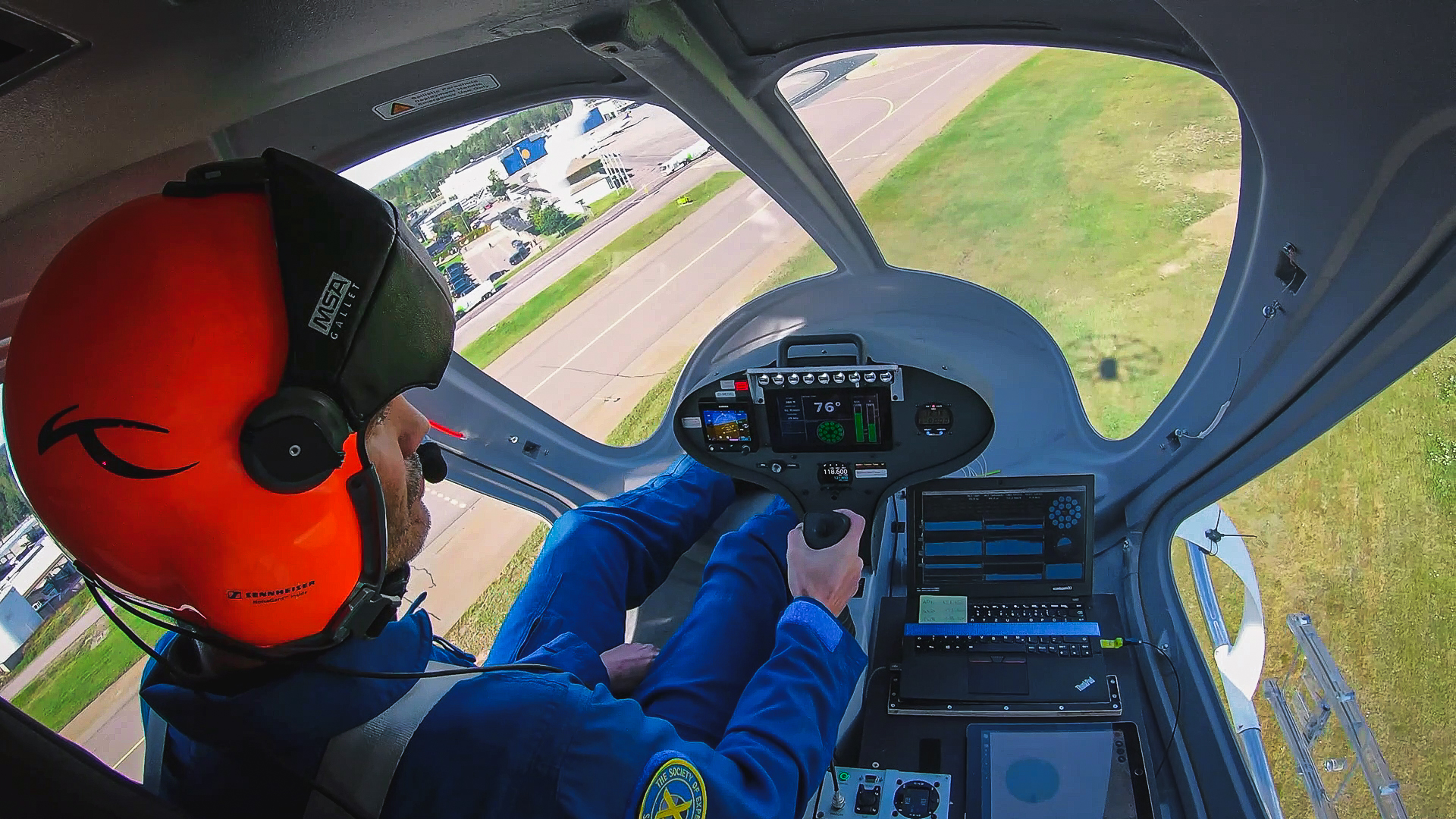Volocopter and aviation training group CAE are together making plans to train pilots for eVTOL aircraft operations. Under an agreement announced on July 8, the companies say they will develop, certify, and deploy a pilot training program to support the launch of commercial operations, which are anticipated to begin in 2024.
The agreement commits CAE to invest up to $40 million to meet Volocopter’s projected demand for eVTOL pilots in the early years of operations. The Canada-based group will deploy training equipment and instructors through a global partnership, with the initial training services expected to be provided outside Europe.
Germany-based Volocopter has agreed to purchase a simulator from CAE to be used in its pilot training program certification. According to the company, this simulator will be developed specifically for eVTOL aircraft operations and will be equipped to train pilots to fly any of Volocopter’s in-development vehicles, including the two-seat VoloCity and the larger VoloConnect model. A spokeswoman told FutureFlight that Volocopter will not need type-specific simulators “because flying an eVTOL will be much less complex than flying current aircraft types.”
To develop simulators and the overall training program, CAE says, it will employ new technologies including artificial intelligence, virtual reality, mixed reality, and data analytics. The company will be responsible for developing all courseware for training Volocopter pilots and will provide trainees with customized resources.
According to Volocopter, its initial business model will involve recruiting its pilots for its own commercial operations. The company says it remains open to the possibility of working with operating partners. Existing partners for its plans include Aeroports de Paris (since services are due to start in the French capital in time for the 2024 Summer Olympic Games), automotive group Daimler, and Microsoft Azure.
“As we scale our urban air mobility services in cities around the world, specific pilot training and qualification for our Volocopters will be an important element,” said Volocopter CEO Florian Reuter. “We are proud to be working with CAE, who have a track record in developing best-in-class, innovative pilot training solutions for new aircraft programs. It will be a great benefit to Volocopter’s entry-into-service timeline and scale.”
Through its collaboration with CAE, Volocopter will continue to work with aviation regulators to establish experience requirements for pilots. The company indicated that it intends to recruit and train both experienced and new pilots.
“There will be a big demand for pilots, so we are not limiting the choices here,” said the spokeswoman. “In the end, it will depend on what skills and education are necessary at the very beginning and later down the line.”
Early this month, CAE published a white paper on training needs for the advanced air mobility sector in which it estimated that operators will require around 60,000 pilots in the first decade of commercial services. On July 7, Christopher Courtney, CAE’s director of advanced air mobility, told journalists in a briefing organized by the Vertical Flight Society that it typically takes manufacturers of existing “conventional” aircraft 36 months or more to develop a training program ahead of service entry.
“There are more complications with these new aircraft so they [eVTOL aircraft developers and operators] can’t think of this [training requirement] at the last minute,” he commented. “They need to be on it two or three years out. Investors won’t be happy with last-minute delays, and you don’t want training objectives being the reason you don’t hit your financial objectives.”
